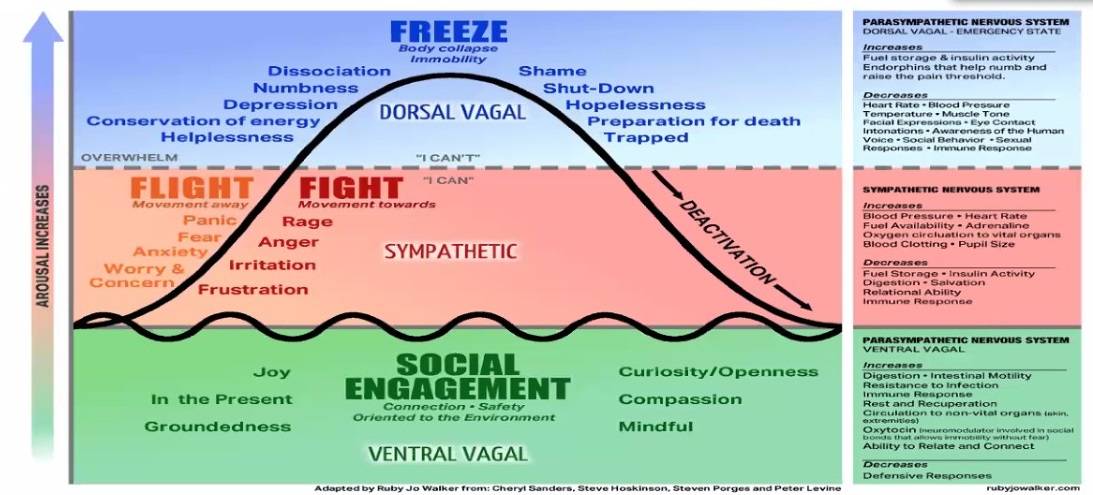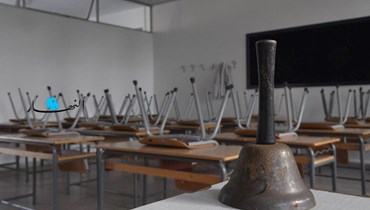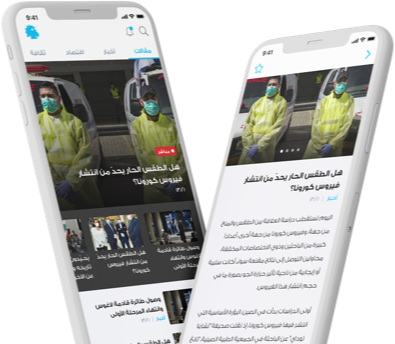Psychological resilience during the COVID-19 pandemic: is it attainable?
BEIRUT: Trees in Ushuaia, the southernmost city in the world and capital of Tierra del Fuego in Argentina, are called “flag trees” given their tendency to follow the wind direction and subsequently bend towards one side. Ghida Husseini, counseling psychologist, stress and trauma counselor and trainer recalled associating the sight of these trees, during one of her trips to Ushuaia, with the concept of resilience.
“Resilience; do we bend or break? Resilience isn’t a synonym of coping,” affirmed Husseini, “Resilience is the ability to bend with the wind, to flow with the current, to bounce back from a shock, whereas coping is the ability to manage difficult and challenging conditions. Our resilience increases as we learn how to cope, and we should be resilient during these times.”
Amid the global outbreak of the COVID-19 pandemic, the abrupt routine disruption affected most of the globe’s population, leading to a stress exacerbation among most. Husseini recently discussed the cruciality of maintaining psychological resilience when facing distress within the current confinement, in an online session facilitated by the May Chidiac Foundation - Media Institute (MCF-MI); INSERT INTO articles (articleId, timestamp, date, title, teaser, slug, status, primaryCategory, description, authorId, sourceId, url, lastUpdate, hasImage, contents, summary) VALUES in partnership with the United Nations Entity for Gender Equality and the Empowerment of Women (UN Women) in Lebanon. This online session is part of a broader project titled “Reporting on Gender-Based Violence with Emphasis on Sexual Trafficking” launched earlier in 2020 by the May Chidiac Foundation-Media Institute (MCF-MI); INSERT INTO articles (articleId, timestamp, date, title, teaser, slug, status, primaryCategory, description, authorId, sourceId, url, lastUpdate, hasImage, contents, summary) VALUES in partnership with The United Nations Entity for Gender Equality and the Empowerment of Women (UN Women); INSERT INTO articles (articleId, timestamp, date, title, teaser, slug, status, primaryCategory, description, authorId, sourceId, url, lastUpdate, hasImage, contents, summary) VALUES and funded by the Government of Japan and Finland’s Development Cooperation.
“Absurdity and uncertainty cause stress because individuals feel that they’re fighting an intangible opponent. Stress is subsequently normal in these abnormal times,” the speaker noted.
The multiplicity of rapid and sudden changes affects simultaneously different life aspects, making the COVID-19 pandemic clearly disruptive and emotionally overwhelming. This unforeseen situation generated an irrational fear of losing life, causing trauma, according to Husseini.
In parallel, accepting the human condition is key to the normalization of stress, to become aware that the fear of the unknown is normal and common, and that all forces are uniting to face the imminent threat. The bodily responses to threats are the body’s means of trying to survive.
“We realized that human beings are vulnerable since a tiny virus is incarcerating millions around the world. However, these same human beings are smart, considering that they are finding ways to protect themselves,” added Husseini.
What is stress?
In fact, the physiology of stress shows that the human nervous system is biased towards the assessment of threat more often than this latter is present, as a way to stay safe, knowing that human brains are survival-oriented. The nervous system’s response to threat will be either fight, flight, or freeze, as shown in the chart below. In case of inability to fight or flee, the response to stress will potentially remain in the body, causing more psychological exhaustion.

Stress response: Fight, Flight, Freeze (Source: rubyjowalker.com)
“Stress shows in feeling more anxious, worried, and tense than normal,” said Husseini. “You might also feel distracted, jittery, and unable to focus on anything very well, or for a very long time. Thinking about the outbreak and wanting to learn everything about the pandemic even when you are trying to focus on other things are also signs of stress.”
What does stress generate in confinement?
Confinement generates numerous problems such as poor diet control due to the natural human need for instant gratification whenever in a negative situation, which is a gratification gap often filled with excessive food. Being quarantined also incites frustration, attention issues, sleep cycle disturbance, and fatigue, not solely provoked by physical effort.
Fear also escalates in similar times.
“The stigmatization of COVID-19 infected patients reminded me of the stigmatization of cancer patients a few years ago,” elaborated Husseini. “Stigma is destructive.”
Dysfunctionality in the family dynamics might also see the light if not avoided. It sometimes leads to interpersonal conflicts such as domestic violence or excessive consumption of alcohol, tobacco, and drug overuse.
“Fighting with others will provoke others’ stress as well, so it’s unhealthy for both parties involved in the fight,” insisted Husseini.
She added that psychologists still ignore the aftermath of this crisis on the human’s psychological growth and human ties after confinement.
However, Husseini thinks that the Lebanese society, in particular, will be able to overcome this crisis since it has always been functional post traumas.
How can one manage distress and stay resilient?
“Breathing is free of charge. Do more of it,” advised Husseini, noting to the online session’s attendees that the best breathing techniques are the straw breathing- ideally done before sleeping- and the mindful breathing.
The counseling psychologist also emphasized the importance of sleep as a critical factor in stress release.
“No phone, no thinking, no work, and no eating in bed. Just sleep.”
Moreover, creating a workplace at home is essential for concentrating all the attention on work regardless of the unusual work environment.
“Create a routine for yourself. For instance, take off your pyjamas, and wear casual clothes as if you’re going to your workplace. It will redirect your focus.”
Husseini also suggested taking breaks during the day, reminding oneself that violence doesn’t solve problems and that light is at the end of the tunnel, distracting oneself from anger triggers by doing fun activities, and connecting and expressing emotions through words without blaming others for one’s own emotional exhaustion.
Enhancing skills is also key to self-discovery and managing to stay healthy, as well as exercising, monitoring the use of alcohol, caffeine, and tobacco.
However, sanity remains hard to maintain among communities in need especially amid an exacerbation of financial difficulties, knowing that quarantine can’t be luxurious to everybody.
“I can’t expect from people who can barely make it through the day to stay home and stick to physical and psychological safety tips. From a psychological point of view, such people can be taught breathing techniques that can help them control their stress,” she said.


 اشترِك في نشرتنا الإخبارية
اشترِك في نشرتنا الإخبارية











